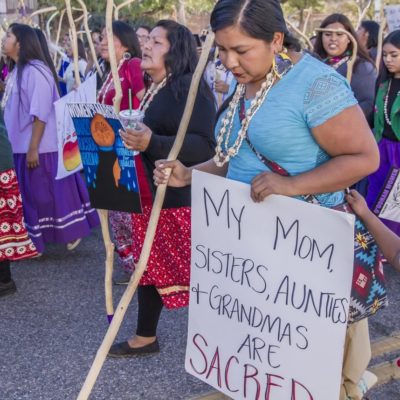Global challenges, such as pandemics and climate change, are deepening inequality.[i] The COVID-19 pandemic has had a disproportionate effect on women and marginalised groups (e.g. Women bore brunt of impacts of C19[ii], C19 has had a disproportionate impact on some racial and ethnic groups [iii]) It has also provided a catalyst for challenging the status-quo. This is evident in the changes in ways of working at local, national and international levels, giving rise to new opportunities to shift the power. In the international development field, this includes power that has traditionally rested with centralised and/or Northern institutions, shifting towards more locally-led approaches and Southern researchers and practitioners. This shift in power can have a larger impact if worked on jointly, rather than in silos.
To make real progress towards parity in research, evaluation and policy work, we can double down on the shift towards locally led approaches and increased in-country research that has occurred in recent years. But, to make this sustainable we need to ensure that not only work, but power, is shifted to as diverse a network of actors as possible.
Many commendable initiatives and organisations are attempting to diversify the power between geographies, generations and genders, and to shift power imbalances to bring more accountability into our work. We’ve taken a look at just a few for inspiration…
Youth-led initiatives
Our Generation for Inclusive Peace (OGIP) is a grass-roots, youth-led, feminist advocacy and research forum that aims to advance, shape and influence the Women, Peace & Security (WPS) and Youth, Peace & Security (YPS) agendas to be more inclusive, intersectional and decolonised. Through three foundational pillars of research, advocacy and partnership, OGIP creates a space for young people to catalyse change and contribute to inclusive and positive peace.
Focussing specifically on the Research Pillar, OGIP has unpicked the concept that ‘knowledge is power’, questioning whose knowledge research is traditionally giving power to? Research in the field of peace and security is often a product of patriarchal and ageist institutions situated in the global north. OGIP’s platform is a place for critically engaged research and advocacy from young people aimed at disrupting ‘traditional’ methods and voices of research, creating a space for young people to catalyse change and progress the field of peace and security through artwork, poetry, interviews, podcasts, writing photography or storytelling.
OGIP’s most recent research series explores ‘Feminist Recovery’ and is an example of the structures designed to shift the power in research work. In a research piece on the Khawaja Sara community in Pakistan, researcher Alamgir discusses how the COVID-19 pandemic has impacted people with marginalised gender identities and outlines the survival strategies adopted in response. Another piece by Alexandria Kazmerik, explores the impacts of the pandemic on LGBTQ+ and gender diverse youth, including how increased homelessness and violence has impacted their mental and physical health.
OGIP has designed research generating and governance processes to counteract existing power dynamics. Themes for research series are suggested by youth engaged and committed to realising OGIP’s mission. These themes are then reviewed and selected by a Research Group, who are also responsible for copy editing, maintaining collective engagement and ensuring that it is youth advocates who are choosing, writing and editing research.
_
Agora is a UK wide youth-led open-source thinktank that aims to shift the balance of foreign policy discussion to include more youth perspectives. It publishes blogs and policy papers on UK Foreign Policy and holds panel events to increase youth engagement with foreign policy. Through policy papers such as ‘Introducing the Purple Age: Crowdsourced recommendations for a Feminist Foreign Policy’ and parliamentary committee evidence submissions such as ‘‘Women in the Armed Forces: From Recruitment to Civilian Life’ , Agora seeks to shift power by influencing policy solutions sourced from an open access youth-led network.
Agora is also a member of the wider Open Think Tank Network with youth led organisations in Switzerland, Germany and Austria, frequently collaborating with other network members and external organisations to ensure international perspectives on foreign policy issues. This includes crowd sourcing and collating policy suggestions through the Open Think Tank Network’s online platform, Policy Kitchen. Through a series of workshops, participants collaborate online to create policy ideas which are then workshopped and refined. This real time policy collaboration tool has enabled international participation on policy papers and allowed young people to feel represented through the policy suggestions they have helped create.
Place based approaches
The Essex Climate Action Commission is an independent, voluntary and cross-party body set up by Essex County Council (UK) to advise the county on how to reach net zero emissions in order to combat climate change. The Commission is made up of over 30 commissioners from a range of backgrounds across the public and private sectors and civil society organisations. It has begun to shift the power of decision-making and policy around climate change, by taking an inclusive approach to the Commission membership. Two of the co-chairs are from the Young Essex Assembly and represent the views of the youth of Essex. The Commission is also non-partisan, with officials from all political parties represented.
The Commission has taken a county-led approach to achieving Net Zero by 2050. The Commission is tailoring policy approaches, planning and delivery to local needs and investing in locally based solutions, as a member of the Place Based Climate Action Network working across the UK in cities including Leeds, Belfast and Edinburgh.
Equity Indexes
The Racial Equity Index was created with the ambition to produce a tool that will provide greater accountability for racial equity within and across the global development sector. By assessing global development actors on how they may be perpetuating racial inequity in their work and organisations, the Index can seek a shift in power by highlighting where inequalities and inequities not only exist but are being actively upheld. This enables power imbalances to be challenged so that change can be made.
The Equity Index recognises that actors from the Global North still hold most of the power. They remain the decision-makers and gatekeepers of resources, despite commitments to place people and communities at the centre of their work. By holding a mirror up to the sector, the Equity Index seeks to enable a power shift from North to South, shining a light on the inequities that exist and enabling and encouraging organisations to do better.
_
While power imbalances continue in development and research organisations, it is encouraging to see many examples of groups working to drive a shift in power that will enable more diversity of thought and experience, in order to better tackle global challenges. Where power can be shared, new ideas may be generated. A more equitable approach to power itself will support and maintain sustainable equity in our work, allowing our sector to develop and deliver better solutions to the global challenges we all face.
[i] Tackling the Inequality Pandemic: A New Social Contract for a New Era. UN Secretary-General’s Lecture for Nelson Mandela’s International Day, UN (2020). https://www.un.org/sg/en/content/sg/statement/2020-07-18/secretary-generalsnelsonmandela-lecture-%E2%80%9Ctackling-the-inequality-pandemic-new-social-contract-for-newera%E2%80%9D-delivered
[ii] Drowning just below the surface: The socioeconomic consequences of the COVID-19 pandemic, IFRC, 2021, https://www.ifrc.org/document/drowning-just-below-surface-socioeconomic-consequences-covid-19-pandemic
[iii] The Inequality Virus: bringing together a world torn apart by the coronavirus through a fair, just and sustainable economy, Oxfam, January 2021, https://oxfamilibrary.openrepository.com/bitstream/handle/10546/621149/bp-the-inequality-virus-250121-en.pdf


